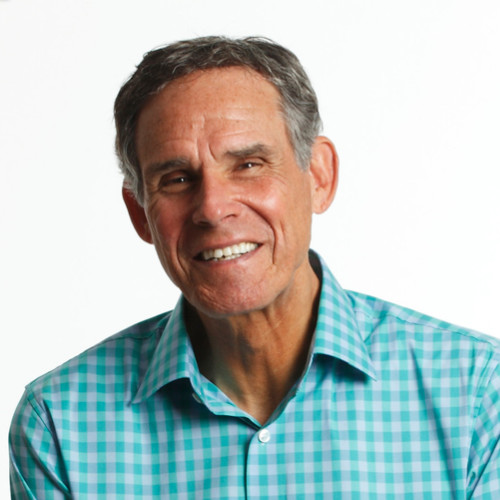Or listen in your favorite podcast app
Apple Podcasts / Google Podcasts / Stitcher
“A machine can be trained to see things that humans will never be able to see. –@EricTopol #ITVisionaries
Show Notes
Dr. Topol (Website | Twitter) is a geneticist, medical researcher, and author of Deep Medicine. He has written over 1100 peer-reviewed articles and is one of the top most-cited medical researchers in the world.
In this episode, Mission CEO Chad Grills sits down with Dr. Topol to talk about how A.I. and machine learning are putting the patient experience back at the forefront of healthcare. Dr. Topol also explains why you don’t actually own your own medical data and what steps we need to take to get it back.
Topics Discussed: Machine learning, healthcare, data, AI.
Using Machines To Emphasize The Human Side Of Medicine — (2:00)
- Eric shares the story of how he was prescribed opioids and antidepressants after his knee replacement.
- New technology like A.I. and machine learning can help us restore the human side of medicine.
- You need to own your own data so that you can really own your health.
- Mentioned: The story of a newborn whose life was saved by having his genome sequenced in record time.
- “A machine can be trained to see things that humans will never be able to see.”
- Today, the average time of a doctor visit is only 7 minutes. A.I. and machine learning will make it so that doctors have more time with their patients and give them the space to treat each individual as an individual.
- Eric’s prediction: We will see doctor’s offices becoming not just paperless, but keyboardless with as voice to text software continues to advance.
- “Shockingly, one-third of medical procedures performed are unnecessary.”
- In the US, we do tons of extra procedures and lab tests that aren’t needed. Part of this is because many routine checks aren’t personalized and some produces are done out of fear of medical malpractice. We have to get out of that mindset and start to use algorithms that can help us figure out what patients really need.
- A strong patient-doctor relationship limits the chances of there being any kind of legal action needed. The patient trusts their doctor and the doctor really cares about the patient so puts in the time and research to provide the best care.
- “When there is burn out, there is a doubling of error.”
- “It has become a field day of enterprise at the expense of patients.”
- Four decades ago, the bond between patient/doctor was essential. Doctors had more time with their patients. Today, there are so many touch points in healthcare where external businesses get mixed in that it has become more about making money than patient care. This shift is leaving doctors overworked and burnt out.
- “We’re in a pretty desperate state of shallow medicine and we need to move into this new opportunity of going deep with people.”
- “We don’t need brainiacs now. We need people that know how to use algorithms and machines, and [build] inter-human connection.”
You Don’t Own Your Own Medical Data — (15:30)
- Mentioned: Eric’s Pinned Tweet.
- “Not only did you pay for it and it’s your body, but it could save your life.”
- Today it’s almost impossible to have all your data because it’s distributed over many different doctor’s offices and health systems.
- “All this data is homeless, and it needs to be at your home.”
- In order to use A.I. to its maximum potential, we need to have all of our data to input into the system. That’s why it’s so important for you to have easy access to your data.
- Today, healthcare systems think that they own your data. To fix this we need to:
- 1) Implement governmental legislation that states that people own their data and that it can’t be sold without their knowledge and consent.
- 2) Build a technological solution — using maybe cloud or blockchain — that is user-friendly, searchable, and seamlessly integrated.
Estonia As An Example Of An Open-Data Medical Market — (19:40)
- Estonia has a very savvy health tech system. They believe that it’s every citizen’s right to own their healthcare data.
- In fact, people can even make money selling their data if they wish.
- “Your medical data when it’s hacked and sold on the dark web is five times more valuable than your financial data or your personal data.”
New Types Of Training For Medical Professionals — (24:00)
- The current system of medical certification is an expensive 8+ year process. Accelerated learning academies and ISAs may change this in the future.
The Potential Drawbacks Of A.I. In The Medical Field — (26:00)
- One drawback of A.I. is that its ability to predict future issues or complications may not be very accurate.
- Chad shares how machine learning could be used to deliver the right ‘placebo’ that encourages someone to engage in specific preventive care.
- Mentioned: Eric’s “The A.I. Diet” article in The New York Times.
Lightning Round — (32:15)
- Recommends the work of Abraham Verghese.
- Watching Homecoming and The Marvelous Mrs. Maisel.
Learn more about Dr. Eric Topol’s work at his website or connect with him on Twitter. You can find his book, Deep Medicine, on Amazon.
To find more episodes of Mission Daily and hear the original episode with Dr. Topol, visit here.




